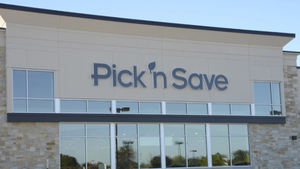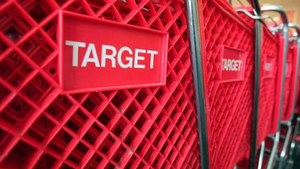Food Safety Forum: Expanding the food safety net
January 1, 2018
While the Food Safety Modernization Act is a good start, a centralized database is needed to ensure food safety and protect the industry’s reputation. By Randy Fields Although the new Food Safety Modernization Act (FSMA) calls for the ability to identify supply chain participants “one forward and one back,” it does not require a repository where all information related to food safety can reside. Yet, this need to have one place to allow fork to farm visibility, store the newly required food plans and generate alerts as certifications and documents fall out of compliance is critical to improving the safety of the food chain. Not surprisingly, the challenge for everyone, including grocery retailers, comes down to cost and ease of use. The FSMA requires that all companies maintain “one forward, one back” records on the food they handle: information on where the food came from, and where it’s going. This requirement is insufficient for two reasons. First, it doesn’t provide adequate protection for the company and its brand. Consider these stunning facts: in an April report, the Government Accountability Office found that more than 80% of seafood sold in the U.S. was imported from foreign countries, many of which have more relaxed food safety standards than does the U.S. Additionally, the U.S. Department of Agriculture reported that in 2005, 44% of fruit and 16% of vegetables sold in the U.S. were imported. Those numbers have only increased since then. Because today’s consumer is bombarded with stories about food contamination, safety is still top of mind for most food companies. The growth of “natural” and “organic” grocers over the last decade is primarily based on the notion of safety. Consumers not only expect food in the supply chain to be safe, but, when the added certainty of natural or organic is added to the equation, they are willing to pay more for the sense of well-being. That’s one reason why simply following the minimum government guidelines is not enough for companies who wish to protect their hard-earned branding; it is just the absolute bare minimum. Instead, it is essential for companies to find additional, more thorough and faster ways to verify that their food is safe, too, even if their customers shop their stores primarily for price or other considerations. Second, the new regulations introduced in the FSMA will no doubt place an onerous responsibility on all participants in the food supply chain and will impact all of the components of a company’s data repository system. Gathering data on lots, batches, where the product was shipped and where it originated could occupy a tremendous amount of a company’s resources. Databases will need to be reformatted to accommodate new and larger identification numbers and new data fields. IT staff will have to determine how they will receive and integrate data from their suppliers, in addition to finding out how their customers need data to be organized and transmitted to fit into their systems downstream. While such a system may be feasible for the larger players in the flow of food from farm to shelf, it will be particularly cumbersome on smaller companies that may not have IT staff or sophisticated computer resources. The answer is clearly the creation of a centralized, national database that can gather, store and transmit food safety information. Such a system would be easy to use, fast, accurate and cost effective. One of the biggest advantages of a centralized food safety repository is speed. When food products are making members of the public ill or even causing fatalities, nothing is more important than determining the source of the contaminated food and removing it from the supply before more harm is done. However, when potentially thousands of databases are involved in a search to find contaminated food, speed is the first casualty. A centralized database provides one-stop shopping for investigators to track and down and eliminate hazardous food without spending days or even weeks negotiating numerous and varied databases. Another benefit for participants in a centralized food data repository is cost. Maintaining an individualized database and the IT staff to support it is expensive. A central food data repository makes the most sense because all of the participants pay only a small fraction of the cost to maintain the system. A third benefit of a central database is ease of use. When everyone is using the same system, there are no disagreements over how data is to be formatted or transmitted upstream or downstream. IT staff would deal with only one system, as opposed to potentially hundreds or thousands in the case of large grocery retailers and distributors. When data is entered into the system, it immediately becomes available to everyone and is always accurate up to the minute. Other benefits for grocery retailers include:
Complete visibility and traceability from table to farm;
Transparency for consumer base and enhanced customer loyalty;
Limited brand exposures due to recalls;
Quicker response for pulling contaminated good from shelves; and
Better targeting of specific products during recalls.
A central database would provide benefits for suppliers as well, including:
Traceability both forward and backward;
Online visibility and insight into supply chain flow for supplier and partners; and
Future-proofs compliance with food safety regulations,
The answer to ensuring the safety of the country’s food chain and improving accountability from the farm to the grocer’s shelf does not lie in thousands of individual tracking systems, each maintained by a separate grower, manufacturer, distributor and retailer. These companies are good at what they do, which is to move food product safely and efficiently through the food chain. By partnering with organizations to provide a national food safety database, everyone involved in the food chain can have easy access to enhanced data—far more complete than “one forward, one back”—while minimizing their costs and allowing them to focus on their core businesses. Randall K. (Randy) Fields is chairman and CEO of Park City Group, a software and services company based in Park City, Utah, that provides collaborative supply chain, merchandising and store level solutions for both retailers and suppliers. For more information, visit www.parkcitygroup.com, or call 888-842-5465.
About the Author
You May Also Like




